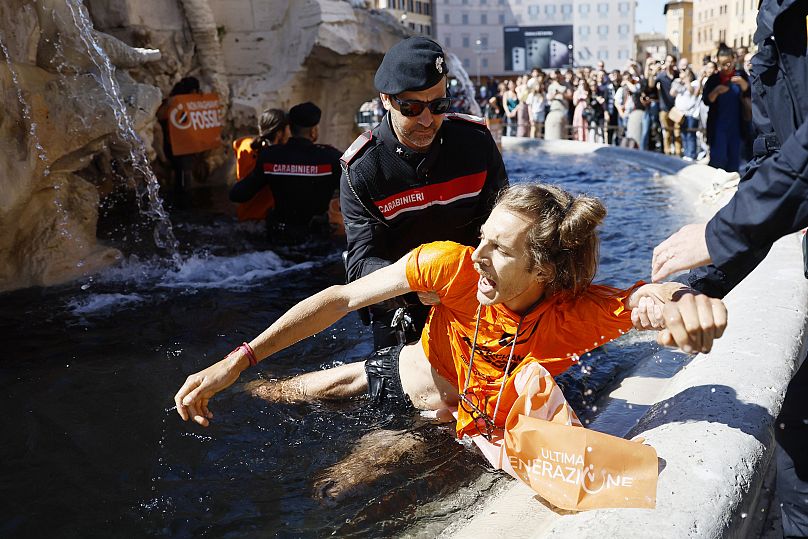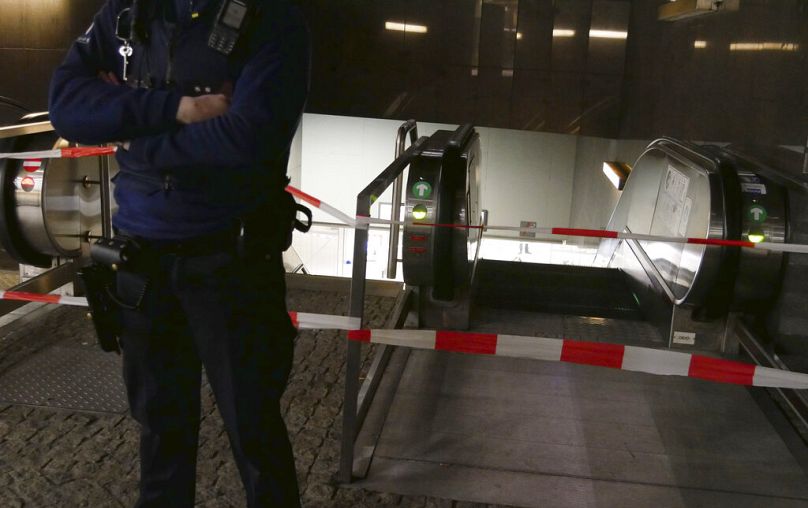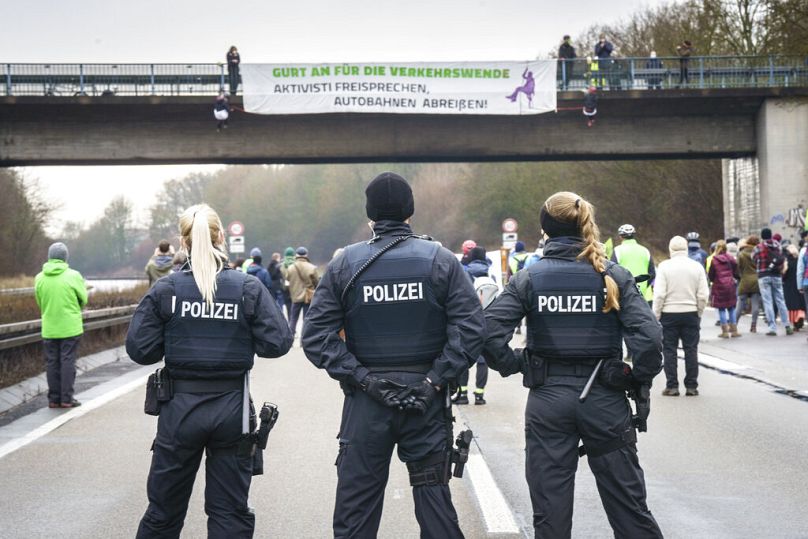The European law enforcement community must take the initiative and face its greatest challenge yet head-on: our planet’s changing climate, Dr Detlef Schröder writes.
The climate crisis is the defining emergency of our times, but law enforcement authorities in Europe and elsewhere are neither properly trained nor equipped to deal with the evolving scenarios of environmental fallout.
 ADVERTISEMENT
ADVERTISEMENT
 ADVERTISEMENT
ADVERTISEMENT
When we talk about the greatest challenges facing society, and law enforcement’s role in them, we rarely, if ever, refer to climate change – the most pressing global issue of our times.
Generally, law enforcement naturally tends to view its priorities as "the here and now" and, as such, does not treat climate-related issues with a sense of urgency.
But this is not a problem for the far-distant future: the climate crisis is on the world’s doorstep now, and law enforcement has a fundamental role to play.
It's time to close the gap
Yet, when climate change is mentioned in European law enforcement circles, it is often in reference to the management of environmental protests or even workplace policies, but rarely law enforcement’s direct role in climate change mitigation and the reduction of climate crime.
Of course, law enforcement does already play a substantive role on the frontline of environmental disasters, but these responses are often seen as "above and beyond" the normal course of duty.
However, climate change will also affect the way we deal with routine emergencies, making environmental fallout a part of the day-to-day remit of law enforcement.
There are some successful international programs attempting to close the gap between law enforcement and climate change.
Interpol’s Environmental Security Programme (ENS) has been successfully supporting countries in tackling environmental crime, and the International Consortium on Combatting Wildlife Crime (ICCWC) has achieved significant progress in awareness about the wide-ranging risks of climate crime, to name a few.
Yet, law enforcement needs a holistic review of its approach to the challenges posed by climate change.
Is law enforcement prepared for climate change response?
Currently, there are many blind spots in law enforcement’s approach to preparing for and responding to climate change.
These include a lack of awareness of risks and future challenges, preparedness for incidents, inadequate training, and interoperability.
Law enforcement preparedness and training for climate-related disasters, such as floods and forest fires, are already of good standard and impactful.
However, they fall short when it comes to the scale of the scenarios that need to be addressed.
Here, law enforcement needs to be prepared to plan and think in terms of large scenarios and to seek seamless cooperation and coordination with all civil protection services.
Training should be aimed at large-scale, regular, multi-professional exercises.
The EU has already established a good mechanism for cross-border mutual assistance in such scenarios.
In the light of climate change, law enforcement could play a more prominent role here. The EU's neighbouring countries should also play a bigger role in mutual support, joint preparedness, and planning.
Now is the time to create effective training
The key to bringing climate to the forefront of law enforcement is creating effective training, and there has never been a more pressing time to do so.
There are already some initiatives in place to develop such training: working in partnership with the UNEP-OCHA Joint Environmental Unit, the Secure Communities Forum (a global initiative established by the United Arab Emirates’ Ministry of Interior) has gathered a broad range of stakeholders to assist the development of one of the world’s first universal climate change training program for first-responders to environmental disasters – emergency services and police.
As presented in the recent Environment and Emergencies Forum in Brussels, this first-of-its-kind program is designed to prepare first responders to deal with routine emergencies impacted by climate change as well as environmental disasters.
Of course, these more focused, "on the ground" practices need to be complemented by strategic initiative approaches to have maximum reach and impact.
We can see the decisive impact that international bodies like Interpol can have in investigating and prosecuting transnational crime, and we need to apply this formula to the climate.
There is already some momentum behind this, with the foundation of the International Initiative of Law Enforcement for Climate (I2LEC), a partnership between the UAE Ministry of the Interior and the United Nations Office on Drugs and Crime, which aims to coordinate to coordinate global law enforcement community's response to the environmental fallout.
Climate-conscious generations still need the right tools
The good news is that the next generation of law enforcement personnel will likely be more climate-conscious and, therefore, more cognisant of the climate’s impact on society, but we need to give them the tools to be effective.
While there are clearly some existing bodies working to bring this issue to the top of the law enforcement agenda, there is more work to be done.
The European law enforcement community must take the initiative and face its greatest challenge yet head-on: our planet’s changing climate.
Dr Detlef Schröder is a senior consultant on police reform and security sector reform and the former Executive Director of the European Union Agency for Law Enforcement Training (CEPOL).
At Euronews, we believe all views matter. Contact us at view@euronews.com to send pitches or submissions and be part of the conversation.














